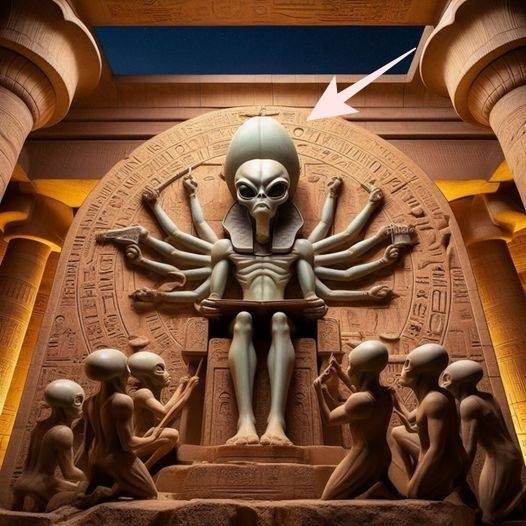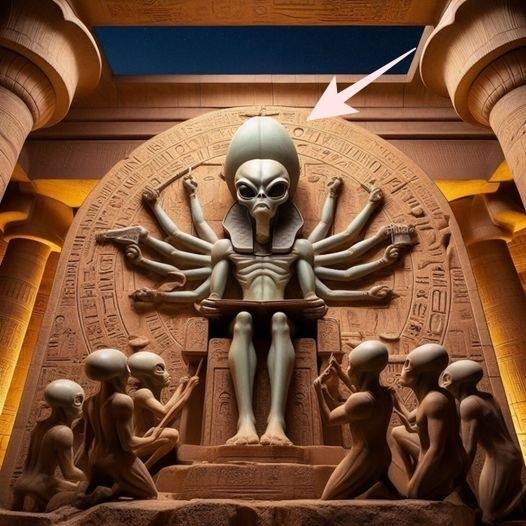The notion that humans might be extraterrestrial beings is a fascinating hypothesis that challenges our understanding of existence and our place in the universe. This theory suggests that life on Earth, including humans, may have originated from elsewhere in the cosmos. This idea, while controversial, has intriguing implications for science, philosophy, and our broader understanding of existence. This article delves into this possibility, exploring its origins, supporting evidence, and potential impacts on our worldview.
#### The Origins of the Hypothesis

The hypothesis that humans, or life on Earth, may have extraterrestrial origins is rooted in the concept of panspermia. Panspermia posits that life exists throughout the universe, distributed by meteoroids, asteroids, comets, and planetoids. According to this theory, life could have been transported to Earth via these celestial bodies, potentially seeding our planet with the building blocks of life.
Several variations of panspermia exist:
1. **Lithopanspermia:** This version suggests that life travels between planets within a solar system.
2. **Radiopanspermia:** Proposes that microscopic life forms can travel on dust particles pushed by radiation pressure through space.
3. **Directed Panspermia:** Hypothesizes that life was intentionally spread by an advanced extraterrestrial civilization.
#### Supporting Evidence
While the panspermia hypothesis is still speculative, several lines of evidence lend it credibility:
1. **Microbial Resilience:** Microorganisms such as tardigrades and extremophiles exhibit extraordinary resilience, surviving extreme conditions that mimic those of outer space. This resilience supports the possibility that life could endure interstellar travel.
2. **Meteorites with Organic Compounds:** Analysis of meteorites has revealed the presence of complex organic molecules, including amino acids, which are fundamental to life. The Murchison meteorite, for instance, contains a rich array of amino acids, suggesting that the ingredients for life might be widespread in the universe.
3. **Interstellar Molecules:** Observations have detected organic molecules, such as glycolaldehyde, in interstellar space. These molecules are precursors to more complex organic compounds, indicating that the building blocks of life may be common throughout the cosmos.
4. **Genetic Evidence:** Some researchers propose that certain aspects of human DNA exhibit patterns that could suggest an extraterrestrial origin. While this idea is highly controversial and not widely accepted, it sparks intriguing discussions about the potential for ancient genetic material to have an alien source.
#### Implications for Understanding Existence
If the hypothesis that humans are extraterrestrial beings were proven true, it would have profound implications for multiple fields of study:
1. **Biology and Evolution:** The understanding of evolution and the origins of life would expand beyond Earth, incorporating a broader cosmic perspective. This could lead to new insights into the mechanisms of life and evolution, as well as the potential for life elsewhere in the universe.
2. **Philosophy and Religion:** The concept of humans as extraterrestrial beings would challenge traditional views of human uniqueness and our place in the cosmos. It could prompt a reevaluation of philosophical and religious beliefs about creation, existence, and the nature of life.
3. **Astrobiology and Space Exploration:** Confirmation of extraterrestrial origins for life on Earth would invigorate the search for life on other planets and moons. It would underscore the importance of astrobiology and potentially guide future missions to explore celestial bodies with conditions similar to early Earth.
4. **Sociocultural Impact:** The realization that humans have extraterrestrial origins could foster a sense of unity and shared destiny among people. It might reduce cultural and nationalistic divides, emphasizing our common heritage as cosmic beings.
#### Challenges and Controversies
The hypothesis that humans are extraterrestrial beings is not without its challenges and controversies:
1. **Lack of Direct Evidence:** Despite intriguing circumstantial evidence, there is no direct proof that life on Earth originated from elsewhere in the cosmos. The panspermia hypothesis remains speculative and requires more concrete data to be validated.
2. **Scientific Skepticism:** Many scientists are skeptical of the panspermia hypothesis due to the lack of definitive evidence and the difficulties in proving interstellar transfer of life. The burden of proof is high, and extraordinary claims require extraordinary evidence.
3. **Alternative Explanations:** The traditional model of abiogenesis, which posits that life arose spontaneously from non-living matter on Earth, is still the prevailing scientific explanation. Research into the origins of life continues to uncover plausible pathways for the development of life from simple organic compounds.
####
The possibility that humans are extraterrestrial beings is a captivating and provocative idea that challenges our conventional understanding of existence. While the panspermia hypothesis remains speculative, it opens up fascinating avenues for scientific inquiry and philosophical reflection. Whether or not life on Earth has extraterrestrial origins, the exploration of this hypothesis deepens our appreciation for the complexity and wonder of life in the universe.
As research progresses and our exploration of space advances, we may one day uncover the truth about our cosmic heritage. Until then, the idea that we are part of a larger, interconnected web of life across the universe continues to inspire and intrigue, urging us to look beyond our planet and contemplate our place in the vast expanse of the cosmos.




